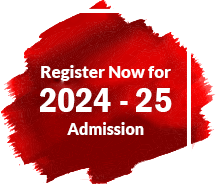PEOs, POs and PSOs
1.UG in Mechanical Engineering (B.Tech)
PROGRAM EDUCATIONAL OBJECTIVES (PEO’S)
The graduates will:
• Be professionally competent to work in theoretical and practical domains of Mechanical Engineering
• Become effective innovators and researchers to address social, economic and engineering challenges
• Have leadership qualities and human values for the holistic development of the society
PROGRAM OUTCOMES (POs)
The graduates of the program will be able to:
PO1. Engineering Knowledge:
Apply the knowledge of mathematics, science, engineering fundamentals, to the solution of complex problems in Mechanical Engineering
PO2. Problem Analysis:
Identify, formulate, review research literature, and analyze complex Mechanical Engineering problems reaching substantiated conclusions using first principles of mathematics, natural sciences, and engineering sciences.
PO3. Design / Development of Solution:
Design solutions for complex Mechanical Engineering problems and design system components or processes that meet the specified needs with appropriate consideration for the public health and safety, and the cultural, societal, and environmental considerations.
PO4. Conduct investigation of complex problems:
Use research based knowledge and research methods including design of experiments, analysis and interpretation of data, and synthesis of the information to provide valid conclusions, related to Mechanical Engineering.
PO5. Modern Tool Usage:
Create, select, and apply appropriate techniques, resources, and modern engineering and IT tools including prediction, modeling and analysis to complex Mechanical Engineering activities with an understanding of the limitations.
PO6. The Engineering and Society:
Apply reasoning informed by the contextual knowledge to assess societal, health, safety, legal and cultural issues and the consequent responsibilities relevant to the professional engineering practice.
PO7. Environmental and Sustainability:
Understand the impact of the professional engineering solutions in societal and environmental contexts, and demonstrate the knowledge of, and need for sustainable development.
PO8. Ethics:
Apply ethical principles and commit to professional ethics and responsibilities and norms of the engineering practice.
PO9. Individual and Team Work:
Function effectively as an individual, and as a member or leader in diverse teams, and in multidisciplinary settings.
PO10. Communication:
Communicate effectively on complex engineering activities with the engineering community and with society at large, such as, being able to comprehend and write effective reports and design documentation, make effective presentations, and give and receive clear instructions.
PO11. Project Management and Finance:
Demonstrate knowledge and understanding of the engineering and management principles and apply these to one’s own work, as a member and leader in a team, to manage projects and in multidisciplinary environments.
PO12. Life-long Learning:
Recognize the need for, and have the preparation and ability to engage in independent and life-long learning in the broadest context of technological change.
PROGRAM SPECIFIC OUTCOMES (PSOs)
Mechanical Engineering graduates will be able to:
PSO1. Apply the knowledge of Engineering materials, thermal and fluid sciences to solve engineering problems utilizing advanced technology.
PSO2. Apply the principles of Manufacturing and Engineering design for analysis, optimization and development of mechanical systems.
2.PG in Computer Integrated Manufacturing(M.Tech)
PROGRAM EDUCATIONAL OBJECTIVES (PEOs)
The Program Educational Objectives (PEOs) of the Post Graduate degree (M.Tech) in Computer Integrated Manufacturing (CIM) program are presented below.
The graduates will:
PEO I. Have advanced knowledge and skills in Computer Integrated Manufacturing (CIM), to develop innovative solutions to complex problems
PEO II. Be able to excel in research and leadership roles along diverse career paths, integrated with professional ethics
PEO III. Be able to design and implement solutions for rapidly changing manufacturing systems through lifelong learning
PROGRAM OUTCOMES (POs)
The graduates will be able to:
PO1: Independently carry out research / investigation and development work to solve practical problems
PO2: Write and present a substantial technical report / document
PO3: Demonstrate mastery over the Computer Integrated Manufacturing systems
PO4: Apply the knowledge of engineering principles to develop manufacturing systems and components, products and processes enabling to solve real world multifaceted problems
PO5: Design and conduct experiments, gain technical skills necessary for engineering exploration to solve societal problems for sustainable development
PO6: Indulge in life-long learning for a successful career, adhering professional and ethical principles with leadership qualities
PROGRAM SPECIFIC OUTCOMES (PSOs)
Computer Integrated Manufacturing graduates will be able to:
PSO1: Apply modern computational, analytical, simulation tools and techniques to face the challenges in manufacturing and its integration
PSO2: Develop research aptitude and cater to the increasing need for better solutions to complex and contemporary problems in production processes









